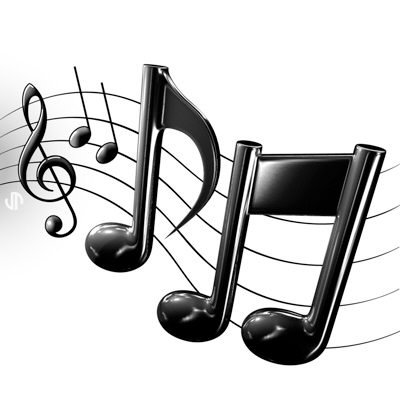R2’s Tunes
Welcome to R2’s Tunes. Below are some songs (tunes) that I especially like. Each tune contains a few words about it and the artist(s). And, for many, I have tried to show some personal connection to the song. Enjoy!
〈Please Scroll Down〉
↓ ↓ ↓
Terrific tunes, from my “ear-of-reception!”
I SEE YOUR FACE BEFORE ME
For my son and me, this is one of our favorite romantic jazz pieces. It was composed by Arthur Schwartz, with lyrics by Howard Dietz, and introduced by Evelyn Laye and Adele Dixon in the 1937 Broadway musical Between the Devil.
The following instrumental version of the song is performed by John Coltrane (tenor sax), Red Garland (piano), Paul Chambers (bass), and Art Taylor (drums).
It was released in 1961 on Coltrane’s Settin’ the Pace album.
I see Erik, my son, whenever I listen to this instrumental version of I See Your Face Before Me.
The following vocal version of I See Your Face Before Me is performed (sung) by Johnny Hartman. Johnny Hartman’s 1980 recording was part of the soundtrack for the 1995 film, The Bridges of Madison County. Hartman’s recording accompanies a key scene where the characters Robert and Francesca dance and kiss for the first time.
And, if the song is sung, then I see Kathy, my wife, before me. :-)
Here are the lyrics to help you better understand the poetry of the song. Enjoy!
“I See Your Face Before Me”
In a world of glitter and glow
In a world of tinsel and show
I discovered somebody who
Could be truly worthy and true
Yes, I met my ideal thing when I met you
I see your face before me
Crowding my every dream
There is your face before me
You are my only theme
It doesn’t matter where you are
I can see how fair you are
I close my eyes and there you are
Always
If you could share the magic
Yes, if you could see me too
There would be nothing tragic
In all my dreams of you
Would that my love could haunt you so
Knowing I want you so
I can’t erase your beautiful face before me
MY FUNNY VALENTINE
“My Funny Valentine” is a show tune from the 1937 Richard Rodgers and Lorenz Hart musical Babes in Arms in which it was introduced by former child star Mitzi Green.
I have two versions of this jazz tune, one instrumental and the other, vocal. The instrumental version is by Paul Desmond. It was recorded in New York City on September 13, 1961 and was included on Desmond’s 1962 album, Desmond Blue.
The vocal version is by Chet Baker from his debut vocal album, Chet Baker Sings, released in 1956. In 2001, the album received the Grammy Hall of Fame Award.
UNCHAINED MELODY
“Unchained Melody” is a 1955 song with music by Alex North and lyrics by Hy Zaret. North used the music as a theme for the little-known prison film Unchained, hence the name. Todd Duncan sang the vocals for the film soundtrack. It has since become one of the most recorded songs of the 20th century, by some estimates having spawned over 500 versions in hundreds of different languages.
This best-known version of “Unchained Melody” was recorded by The Righteous Brothers and produced by Phil Spector in 1965 as the ‘B’ side of the single featuring the song, “Hung On You”. Although the version was credited to The Righteous Brothers, it was actually performed as a solo by Righteous Brother Bobby Hatfield, who later recorded other versions credited solely to him. This recording climbed to #4 on the Billboard Hot 100 chart in 1965 and reached #14 in the UK in 1965.
Unchained Melody – lyrics (Note: The part, below, in parenthesis and italics, is not included in this Righteous Brothers’ version)
Oh, my love, my darling
I’ve hungered for your touch
A long, lonely time
Time goes by so slowly
And time can do so much
Are you still mine?
I need your love
I need your love
God speed your love to me
Lonely rivers flow
To the sea, to the sea
To the open arms of the sea
Lonely rivers sigh
“Wait for me, wait for me”
I’ll be coming home, wait for me
Oh, my love, my darling
I’ve hungered, for your touch
A long, lonely time
Time goes by so slowly
And time can do so much
Are you still mine?
I need your love
I need your love
God speed your love to me
(Lonely mountains gaze
At the stars, at the stars
Waiting for the dawn of the day
All alone I gaze
At the stars, at the stars
Dreaming of my love far away
Oh, my love, my darling
I’ve hungered, for your touch
A long, lonely time
Time goes by so slowly
And time can do so much
Are you still mine?
I need your love
I need your love
God speed your love to me)
CRISTOFORI’S DREAM
This New Age song so moved me in the eighties that I bought tickets, for my entire family, to see David Lanz’s performance of it at Powell Hall in the early nineties. The concert was enhanced by having the Saint Louis Symphony perform with Mr. Lanz.
David Howard Lanz (born June 28, 1950 in Seattle, Washington) is a Grammy-nominated New Age pianist living in Pittsford, New York. His most popular album, Cristofori’s Dream, topped the New Age charts in 1988, which was No. 1 on Billboard’s first adult alternative/New Age chart for 27 weeks and eventually sold platinum. The tune was named for Bartolomeo Cristofori di Francesco (May 4, 1655 – January 27, 1731), who was an Italian maker of musical instruments and generally regarded as the inventor of the piano.
COLD, COLD HEART
“Cold, Cold Heart” is a country music and popular music song, written by Hank Williams. This blues ballad is both a classic of honky tonk and an entry in the Great American Songbook.
Williams first recorded and released the song in 1951, originally as the B-side to “Dear John.” “Dear John” peaked at #8 after only a brief four-week run on Billboard magazine‘s country music charts, but “Cold, Cold Heart” proved to be a favorite of disk jockeys and jukebox listeners, whose enthusiasm for the song catapulted it to #1 on the country music charts. The song achingly and artfully describes frustration that the singer’s love and trust is unreciprocated due to a prior bad experience in the other’s past.
I have two versions of it presented below, one by Hank Williams and the other by Norah Jones. Both of them “achingly and artfully” express emotion of frustration.
Norah Jones, in my opinion, is one of the best contemporary singers of our time. Without exception, every song she sings I like.
PACHELBEL’S CANON
Pachelbel’s Canon is the name commonly given to a canon by the German Baroque composer Johann Pachelbel in his Canon and Gigue for 3 violins and basso continuo (German: Kanon und Gigue für 3 Violinen mit Generalbaß). It is his most famous composition. It was originally scored for three violins and basso continuo and paired with a gigue. Both movements are in the key of D major.
The following performance of Pachelbel’s Canon is by the Orchestra – New Leipzig Bach Collegium Musicum with Conductor – Max Pommer
I find Pachelbel’s Canon to be meditative and up-lifting.
HURT
“Hurt” is a song written by Trent Reznor, first released on Nine Inch Nails‘ 1994 album The Downward Spiral. It received a Grammy Award nomination for Best Rock Song in 1996. In 2002, “Hurt” was covered by Johnny Cash to critical acclaim; it was one of Cash’s final hit releases before his death on September 12, 2003.
Much of Cash’s music echoed themes of sorrow, moral tribulation and redemption, especially in the later stages of his career. His best-known songs included “I Walk the Line“, “Folsom Prison Blues“, “Ring of Fire“, “Get Rhythm” and “Man in Black“. He also recorded humorous numbers like “One Piece at a Time” and “A Boy Named Sue“; a duet with his future wife, June Carter, called “Jackson“; and railroad songs including “Hey, Porter” and “Rock Island Line“. During the last stage of his career, Cash covered songs by several late 20th-century rock artists, most notably “Hurt” by Nine Inch Nails.
“Hurt”
(originally by Nine Inch Nails)
I hurt myself today
To see if I still feel
I focus on the pain
The only thing that’s real
The needle tears a hole
The old familiar sting
Try to kill it all away
But I remember everything
[Chorus:]
What have I become
My sweetest friend
Everyone I know goes away
In the end
And you could have it all
My empire of dirt
I will let you down
I will make you hurt
I wear this crown of thorns
Upon my liar’s chair
Full of broken thoughts
I cannot repair
Beneath the stains of time
The feelings disappear
You are someone else
I am still right here
[Chorus:]
What have I become
My sweetest friend
Everyone I know goes away
In the end
And you could have it all
My empire of dirt
I will let you down
I will make you hurt
If I could start again
A million miles away
I would keep myself
I would find a way
What is the opposite of Ying? Yang! What’s the opposite of hurt? Comfort! There’s something about this song about hurt that gives me comfort.
I WALK THE LINE
For the purpose of contrast and not wanting to give the impression that I don’t like Cash’s early songs, here’s a popular tune from the fifties. “I Walk the Line” is a song written by Johnny Cash and recorded in 1956. After three attempts with moderate chart ratings, “I Walk the Line” became the first number one Billboard hit for Cash. The single remained on the record charts for over 43 weeks, and sold over 2 million copies.
HOTEL CALIFORNIA
Hotel California is one of my favorite rock songs. “Hotel California” is the title track from the Eagles‘ album of the same name and was released as a single in February 1977. It is one of the best known songs of the album-oriented rock era. Writing credits for the song are shared by Don Felder (music), Don Henley, and Glenn Frey (lyrics). This Eagles’ original recording of the song features Henley singing the lead vocals and concludes with an extended section of electric guitar interplay between Felder and Joe Walsh.
The song is rated highly in many rock music lists and polls; Rolling Stone magazine ranked it number 49 on its list of “The 500 Greatest Songs of All Time“. It is also one of The Rock and Roll Hall of Fame‘s 500 Songs that Shaped Rock and Roll. The song’s guitar solo was voted the best solo of all time by readers of Guitarist magazine in 1998 and was ranked 8th on Guitar Magazine ’s Top 100 Guitar Solos The song was also included in the music video game Guitar Hero World Tour. It was most recently voted the #1 12 string guitar song by Guitar World magazine.

Hotel California performed by The Eagles. “You can check-out any time you like,
But you can never leave! “
 R2 Thoughts for You
R2 Thoughts for You 











